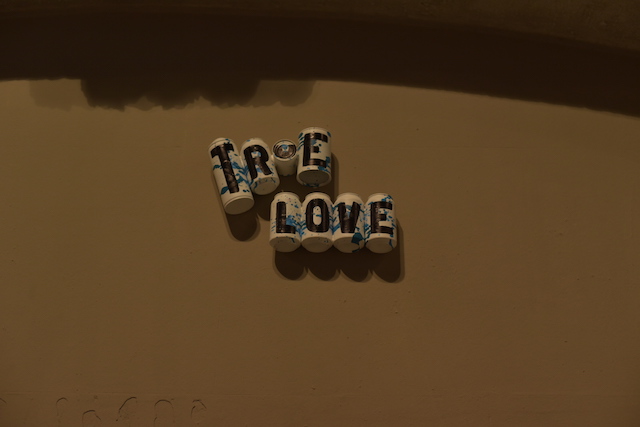
Story by Pete Shaw
The idea of Thankfulness this year may seem a bit odd, and certainly for many, a clear-cut case for the glass being “half-empty” as a default position. Yet here we are again, most of us if not all, which is worthy of appreciation and gratitude. And for those who have against great difficulties gotten involved in any way fighting for greater justice for all people and the Earth upon which we live, including particularly those of us living on the land that held the traditional village sites of the Multnomah, Kathlamet, Clackamas, bands of the Chinook, Tualatin Kalapuya, Molalla and many other Tribes who made their homes along the Columbia River, appreciation and gratitude are due.
In January, at the University of Portland’s inaugural MLK Day ON event, my Friend Walidah Imarisha gave a version of her Why Aren’t There More Black People in Oregon? program. She wove the history of Black people’s organizing for justice and a more just world, focusing particularly on resistance to the gentrification of Black neighborhoods and communities, with the constant reminder that gentrification is not a natural process, but one of willful colonization. That history was spliced with quotes from King, with Imarisha insisting that if we do not examine King’s critique of capitalism, then we cannot understand this country right down to Portland, Oregon.
I have seen Imarisha’s presentation about five times over the years. It changes each time–Imarisha is an immensely curious person and possesses a ravenous intellect–and I always come away from it off balance, which is exactly as it should be. So too is her admonishment that the first step toward achieving a more just world is to center oppressed people.
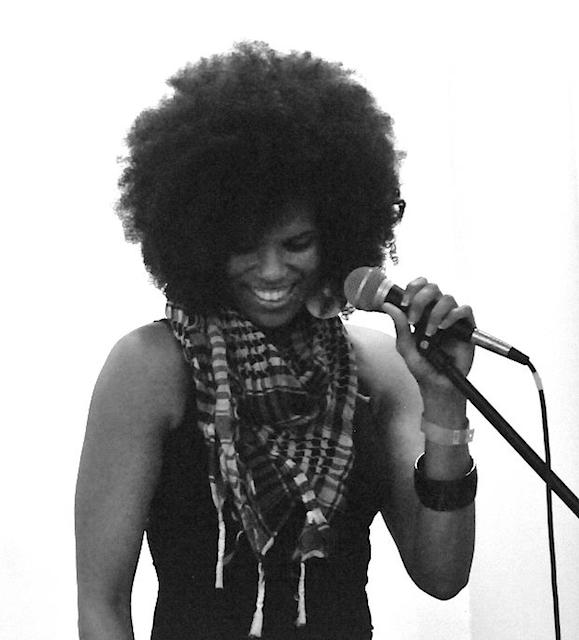
Imarisha’s talk was bookended by singer Julianne Johnson, who has one of those voices that makes me smile and raise my eyebrows, which is how when I am expected to be quiet, I express joy that is near bursting out of my skin. University student rapper Sharif Morton took the stage with Johnson for a number, and the University Singers provided backdrop, which is something very different from backup.
The result of the event was Lovely. Thank you to the students, staff, and faculty who organized the event, and thank you to Walidah. I had not seen her in a spell, and now in this time of Covid-19, I all more cherish the warm embrace she gave me and my better 99%.
Earlier that day, Don’t Shoot Portland and Children’s Art and Social Justice held a rally at Peninsula Park. Over 300 people came out to admire the art of some of the youngest members of our community, and then march down Martin Luther King, Junior Boulevard to the statue of King outside the Oregon Convention Center. Along the route, adults and children carried canvas bags filled with gloves, hats, socks, and toiletries that they distributed to people needing them. On a cold and dreary day, it was a reminder of how much work needed to be done, but as well, the myriad of bright possibilities.
Teressa Raiford, who has long recognized the importance of art in educating people and changing their lives, has been tireless in her organizing with Don’t Shoot Portland. There are not enough words to express my admiration. Thank you, Teressa, and thank you Don’t Shoot Portland.
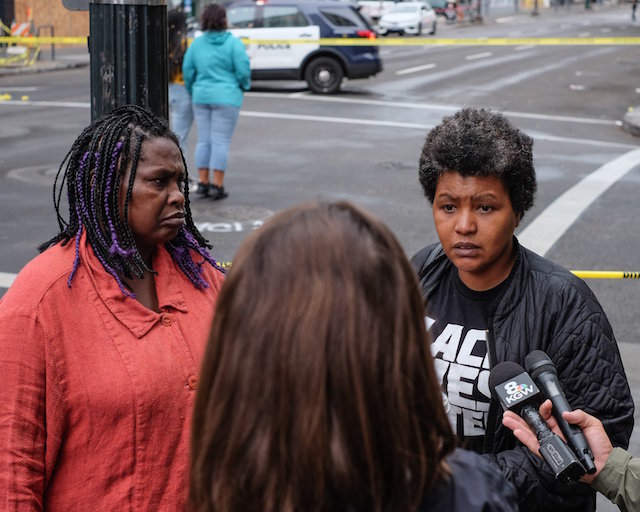
On February 5 I attended a forum regarding migrant justice. My Friend Marco Mejia, long an organizer for migrant justice and immigrant rights, helped put together the forum. I had not seen him for awhile. It was great hearing the stories of the people who had been down to the Mexico-US border and had seen how people are organizing in the face of overflowing prisons, mass numbers of displaced people being turned away at the border, and the dangerous conditions under which those turned away must choose to live under. Whether residing in, for example, the state of Tamaulipas which the US State Department rates as safe as Afghanistan and Syria while awaiting their immigration hearings, or returning home to often horrific conditions linked to US foreign and economic policies that they had fled, the choices are stark. Similar choices are faced by migrants worldwide. As Mejia said, it was important “to understand that the biggest root cause of immigration right now is capitalism.”
The point from the night that stuck with me is that the spirit of the border, said Raquel Barajas, exists everywhere. She noted how when she returned to Portland from the Mexico-US border between Tijuana and San Diego, she saw how institutions such as the Immigration Customs and Enforcement, as well as the Portland Immigration Court, also “employ intimidation and terror” on migrants, just as those agencies do at the official border.
It was heartening hearing about solidarity movements for migrant justice across the globe. One main point of the night echoed Imarisha’s admonition of a few weeks prior. Mejia urged that migrants must build and lead organizations fighting for migrant justice, working in solidarity with other migrant-led organizations.
Thank you to all people fighting for migrant justice.
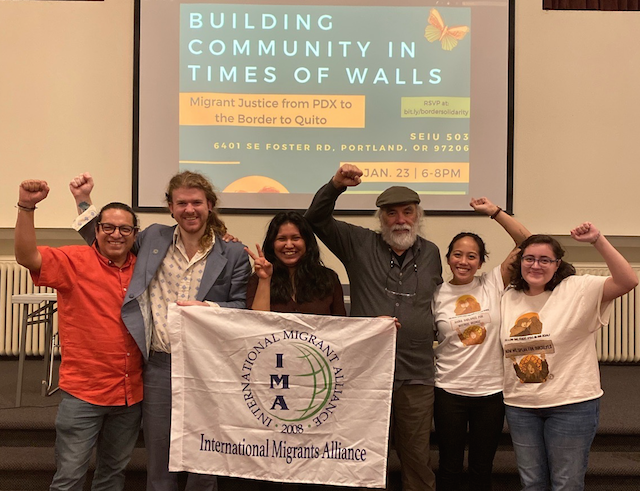
Also in February, the Kenton neighborhood held a meeting demanding an end to the US Postal Service’s experiment of “consolidated casing” for which the folks who lived in the 97217 zip code were guinea pigs. Stories of late mail, lost mail, mis-delivered mail, and the loss of predictable delivery times, as well as the feeling of losing relationships with integral members of the community, made it clear that this was a bad idea. The good news was that the experiment was soon stopped after the immense public outcry. The bad news, as we would find out a few months down the road, was that Postmaster Louis DeJoy was determined to demolish postal service efficiency.
Thank you to everyone who fought for and continues fighting for our postal service. It is an institution that for years has been under attack by the forces of privatization, yet it still remains one of this country’s true treasures.
As I walked out of that meeting, I felt light on my feet. For the first time in a long while, I was able to go around somewhat normally, with only a slight limp favoring my foot seemingly finally recovered from its third consecutive infection.
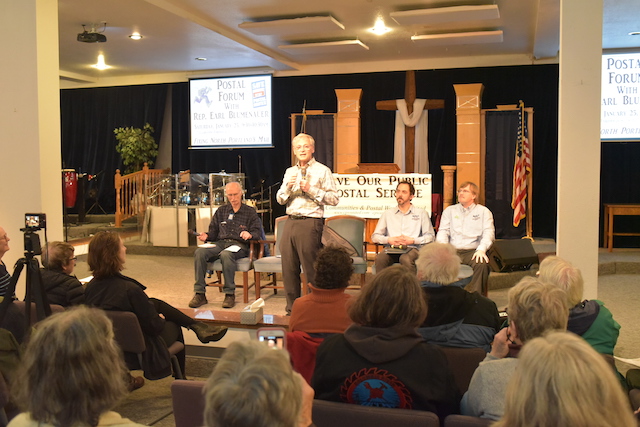
Later that month, my better 99%, who is a doctor, thought it a good idea that I no longer go to the gym. Actually, I was the one who brought the idea to her. On February 26, I did my morning workout, read the news about this spreading virus, and I asked my better 99% if I should stop going to the gym. She said this seemed Wise, and even more so, I should probably start taking precautions like walking around outside with a mask, thoroughly and often washing my hands, and keeping distance from others. And as I often say, if she thinks something is a good idea, then it is a good idea.
Since then, health considerations have forced me to view much of the past nine months from afar. If you had told me a year ago that the series of foot infections that kept my activity extremely limited would soon come to feel the definition of Good Times, I would largely–although not completely, because I was raised in an Irish Catholic family–have dismissed your thoughts with little more than a, “Huh.” And while the comparison has proven false, the harsh fact remains that in late February it became reasonable to consider it. I am thankful for my editors who have worked their magic time and again, despite my small output.
I walk a lot, and like Henry David Thoreau, I have become quite familiar with my neighborhood. I have a few routes, but unlike my better 99%, I don’t need new surroundings to keep things lively. I am a person who notices small things, and so every day offers many things new. Along those walks I visit Friends, masked and at distance, checking in on them, hoping they are enduring, even thriving. Some of these folks have young children, and I worry about them and the world they will inherit from us.
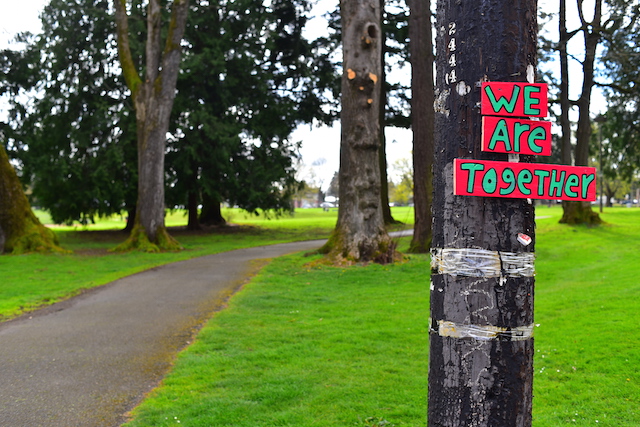
In May, that inheritance collided, as huge protests broke out across the globe when people saw the horrific footage of George Floyd being murdered by the Minneapolis police. There was nothing new in the act. Police murder Black people. Their role has always been to oppress Black people, although it has been expanded to other non-white folks, and even in times of economic duress, toward white people who organize and demand change that challenges capitalism’s status quo, which is upheld by the police, the shock troops of capitalism. But it was one of those moments where years of organizing and pent up anger came together and burst onto the scene.
Tens of thousands of people held a die-in on the Morrison Bridge. They demanded justice. Commissioner JoAnn Hardesty acted like a leader, and so did Commissioner Chloe Eudaly. Mayor Ted Wheeler shilled for the police, sounding little different than Donald Trump’s assessment of the Nazi gathering in Charlottesville, Virginia in August 2017, declaring that there were good people both among the Nazis and the anti-fascists. Night after night, police used tear gas and other forms of violence on protesters. Soon, the Mark O. Hatfield US Courthouse downtown was under siege, and in an attempted show at authoritarian strength, Trump sent in federal troops. The protest crowds swelled, and the federal forces attacked, and in some horrifying cases, disappeared people for short spells. Wheeler got tear gassed. Neighborhoods found tear gas coming through their windows as Portland police haphazardly used the stuff, despite a judge’s statement that they could only use it if they felt lives were in danger.
White supremacist and fascist groups occasionally came to town, and as usual, the police response to them was far more cordial than to those protesting against white supremacy and fascism. Many organizations came together to resist, and on a few occasions my better 99% said it would be okay if I walked around the edges of these resistance gatherings before they got under way. While I was still effectively watching the world go by, it was nothing less than completely uplifting seeing all those people who well knew the police were not going to protect them and might likely attack them, standing up. As someone who was raised Irish Catholic, pride feels sinful. But I was swelling with it as I considered how lucky I am to be associated with people who see Wrong and try to make it Right and Good.
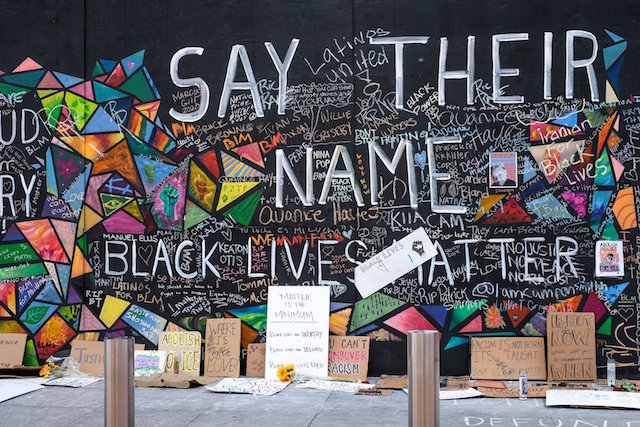
Bob Dylan, the artist of my life, put out a new album in June. The album became the culture of my Summer, and has retained immensely elevated status. My better 99% had to lay down some law, telling me I could only play it when she was not around. As happy as I am spinning Rough and Rowdy Ways, I am happier when I cannot.
I’ve known too many people over the course of the past year who have gotten themselves some cancer. I am a cancer survivor, and because I am the sort who makes lemonade, I have been overjoyed that all of them are still here, thriving. I am always thankful for the presence of good Friends.
Many of my Friends, fellow 1970ers, turned 50 this year, and some still will. Over the course of the pandemic, I found contact with some old Friends. It was Lovely, and it remains Lovely. One of the few stories I was able to write during the pandemic regarded one of these old Friends. We remain in touch, and I am thankful for her presence in my life once more.
When I sent my message to Lillian, crossing space and time, she reached out to an old Friend of hers, Dave, to find me. I was never close Friends with Dave, and I only knew him for a short spell in middle school. But he was always a genuinely Kind person. I always remember him greeting me by calling me “Straw,” speaking it with what sounded like a sneer, but was simply his inflection. It has always been one of my favorite sounds. Dave now works in Hollywood, and it is possible you have seen something he has directed (episodes of The Office, Parks and Recreation, and Space Force are among his credits). He is what I would expect him to be, a decent, caring human being. I am thankful that he is back in my life.

Not so long ago, Friend Matt also turned 50. Matt was among my first Friends in my life. He lived four houses down the block of our suburban New Jersey neighborhood. At that young age, it seemed a huge journey. Sometimes, when I was really seeking adventure, I went the long way, around the block. As I got older, the distance grew shorter, although not for long. Matt soon moved to the other side of town, and if we did not fall out of Friendship, we fell out of touch. The last time I had contacted him was in April or May of 1987, when we were camped out on line for concert tickets.
A couple of weeks ago, on his birthday, as I always have on that day, I thought of him. I looked him up, and I sent him an email. Matt is well. His sisters are well. His folks, of whom I only have pleasant memories, are well. But most invigorating of all was how easy the exchange went. It was as if I had talked with him a week earlier, and we were just picking up the conversation. I am thankful for Matt’s presence in my life, particularly the feeling that he has always been there.
Friends Joannie and Kevin also turned 50 this year. They are some of the most important folks in my life. They are the ones who got the ball rolling between me and my better 99%. I cannot say enough about how much I appreciate them in my life, although I gave it whirl, keeping a yearlong journal that I sent to them for my birthday. It contained pages upon pages of Love, and yet it did not come close to expressing my gratitude and thanks. That’s fine.
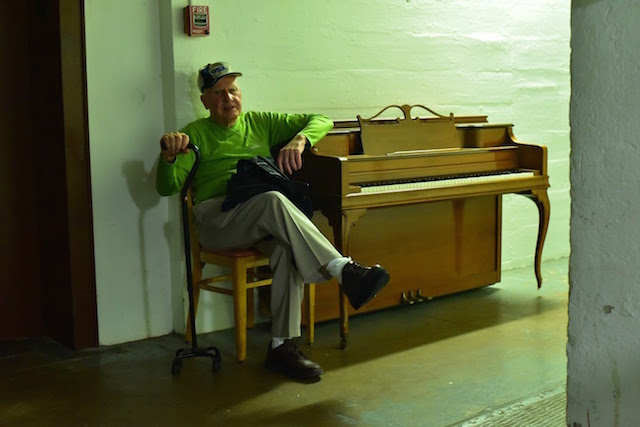
My father is now 95. The independent living facility where he lives has been fantastic at keeping its residents safe. I talk with my dad often, and it is always a treat. As I have written before, he has Alzheimer’s Disease, but it is not terrible. I was telling him the other day how thankful I was to have been raised in a family and a larger community that makes the idea of not wearing a mask or keeping proper distance unthinkable and unconscionable. Unless you have an underlying condition, you should always wear a mask. Not doing so is selfish. I make no claim to sainthood, but I care enough about the health of others that I have been wearing a mask outside of my home grounds since the day I walked out of the gym for the last time. That seems so basic. And I am thankful he has played the role he has played so well for so long.
My brother and sister-in-law live near my dad, and they watch over him. I don’t write much about my sister-in-law in these pages. She is Good. She is Kind. She is a veterinarian, and a few years ago she established a free veterinary clinic for folks who have or want to have pets, but cannot afford their care. My sister in law is highly regarded in her field, and yet her wondrous skills as a veterinarian are only a small portion of this remarkable person who has been in my life for over 30 years. I am always thankful for that, and as with just about everyone else in my life, my only regret is that I have not known her longer.
My better 99% turned 50 last month. I have spent nearly half of my life with her firmly in it. She is the great fact of my life. My thankfulness knows no bounds, and it grows daily. Every day brings something new and beautiful.
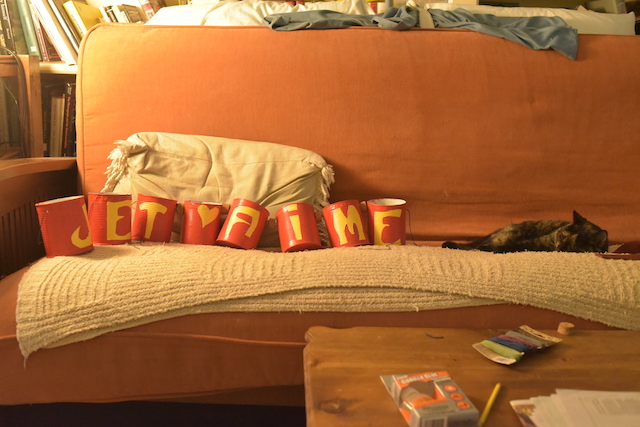
For the first time in years, I have not spent this week cooking our annual Stragglers’ Feast. Sunday would be a day of gathering supplies and some prep, and then come Monday morning, it was 15 hour days of putting together upward of 20 dishes. By the time folks came over on Thursday–sometimes over 30 of them–I was done. Not being a person who functions well in crowds, I would often find a seat in a dark corner or on the porch.
I would be lying if I said I wasn’t happy about having the time off from cooking, but I would also be lying if I told you I can’t think of much more I would rather do this week than cook for a crowd of good and great people. The dinner gathering has quite consciously never been about celebrating settler colonialism, imperialism, or any of the other travesties that come with a country that was created from land stolen from the indigenous population and built upon the backs of enslaved Africans. Almost always, when one follows the traditions as a society’s dominant narratives, one is not only celebrating a violent past, but also a violent present, both of which set the ground for a violent future.
As I type, on Democracy Now!, I am listening to Tara Houska, an Indigenous lawyer, activist, and founder of the Giniw Collective, who is Ojibwe from Couchiching First Nation, describe the fight between Indigenous water defenders in Minnesota against an Enbridge oil pipeline that the US Army Corps of Engineers recently approved. According to Democracy Now!, “After years of resistance, pipeline construction is now set to begin by the end of the month despite the concerns of Indigenous communities, who say it would violate tribal sovereignty and contaminate the land and water. The controversial proposed pipeline would carry tar sands oil from Alberta, Canada, to a terminal in Superior, Wisconsin, cutting through Indigenous territory in Minnesota and running under more than 200 streams. Construction could also bring thousands of temporary workers to Minnesota even as COVID-19 cases are spiking in the state.”
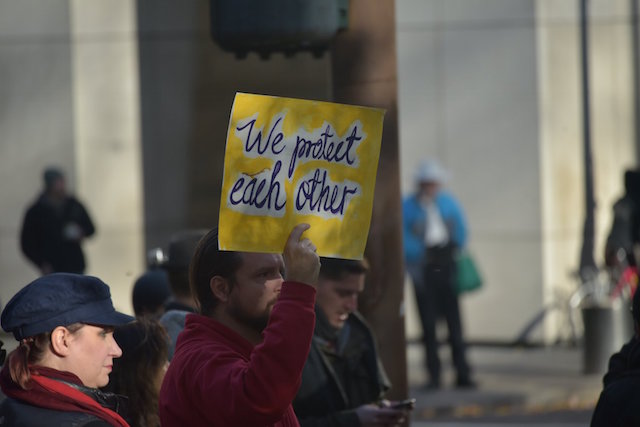
My and my better 99%’s gathering has never featured belt buckle hats or paeans to the whitewashed dominant version of US history that studiously ignores the violence and bloodshed of its favored actors. I am hopeful that Houska is right when she said, “You know, it’s a moment where I think a lot of folks are maybe starting to wake up to the idea those construction paper headdresses and pilgrims and Indian stories really aren’t all that we were taught in school, that there are actually a series of massacres and broken promises that have occurred with the onset of colonization, that it’s not quite so rosy as our children are led to believe. And so I hope that we are able to come together with our families, if we are able to be with our families, or be together through virtual means or whatever it happens to be, and tell some truth about what the real story is and how we learn from that and move forward together.”
Our gathering is, and I hope it will again be, a way of thanking people for the Good they have brought into my and my better 99%’s life, and into so many other people’s lives. As well, it is also the beginning of a long stretch of low and little light days, and for those without companionship, a time of intensified loneliness. We find it important that people know they have a place they can be, where they are Loved, and where they matter.
Finally, I turned 50 this year. In the middle of the pandemic, numerous Friends showed up at distance, with masks, to wish me well. One of my big projects for this 50th rotation around the sun was to send thanks to just about anyone with whom I had reasonable contact over my second 25 years of life. It was not so easy a task, as while for the most part about 75% of the letters were boilerplate, I did type out each one of the about 300 I sent via regular email, Facebook email, and post. My deepest apologies to those of you who did not receive one. I am not a person who is known for being organized in his lists, and the issue was exacerbated by an incomplete list that kept extending.
For those who did not receive one, I give you, with all my Love, the closing: I am grateful, thankful, and full of Love that I have gotten to share some of my life, and that my better 99% and I have gotten to share some of our life, with you.






